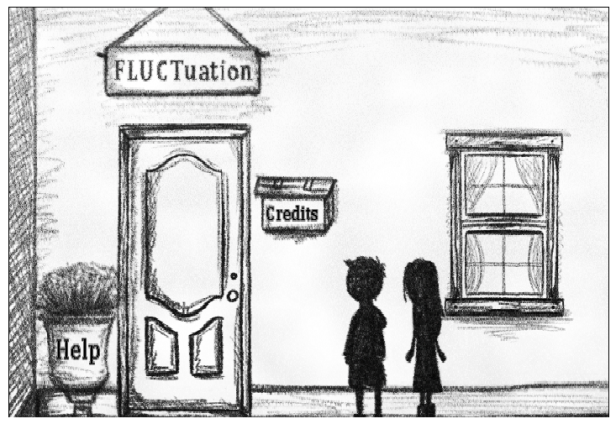Things have been rather hectic since last Thursday! I was in a play, After the Dance, that ran from Tuesday-Saturday of last week (taking up quite a bit of time and energy) and I’ve also started learning Japanese. As one might expect when learning Japanese, the first phrases a person’s taught are very polite: “How do you do?”, “Yes, I’m fine!” and “Pleased to meet you!” are the expressions I can currently recite. I also now know that Bictolia (a word which sounds like some kind of waterborne disease) is the Japanese pronunciation of Victoria. Who knew?
Despite the rather hectic feel of the last seven days, however, it’s been huge fun and the MA course continues to excite me, greatly.
In our theory session yesterday we focused on the topics of ‘Simulation’ and ‘Interactivity’. An especially memorable moment came when exploring simulations: our tutor, Kelly, shared some examples of online games that have been devised as a means of encouraging players to empathise with different mental disorders.

I found FLUCTuation a particularly poignant piece: a game that sought to replicate the experience of living with bipolar disorder. To simulate the feelings of mania, the player’s avatar started the game by soaring higher and higher into the sky, relying on fragile glass platforms to propel him further; however, before too long the feelings of depression were simulated as the character descended into a murky ocean of water. What was interesting in this latter segment was the way in which relationships were represented. As the player’s avatar waded through the mire at the bottom of the ocean, silhouettes of people (presumably his family and friends) floated, ghost-like, at the sides of the frame. Occasionally, one of the silhouettes emitted an attractive orb of white light which floated gently towards the protagonist. Contrary to our expectations, however, when the orbs made contact with the avatar he plummeted to the bottom of the screen and away from his goal: thus, the character and the player were punished. Our class discussed our interpretation of this unexpected mechanic and how it appeared to symbolise the unwelcome attention of others when one is in a period of depression and how depression could lead some sufferers to shunning the help of those around them. Encountering FLUCTuation really helped me to appreciate the way in which intelligently-designed simulations can act as a powerful educational tool.
In our design class, later that day, we spent a significant portion of the time familiarising ourselves with Clickteam Fusion: the software we’ll be using to design our digital games. While it was great fun playing around with the new software, the design task we were set – before logging onto the computers – particularly stayed with me. Our tutor, Chris, gave us a fantastic challenge. With our partners, we had to design a ‘Terminator-esque’ game in which a robot battled four tanks. The challenge came with strict guidelines, however: the tanks were manually operated and a player could alter their actions with each round (so long as the actions stayed within the boundaries of the prescribed rules); by contrast, the robot required ‘preprogramming’ and could only ever behave using a series of actions that were prescribed before the game started. In pairs, it was our challenge to think of a series of prescribed actions that the robot should take on each turn, so that by the time it had reached the other side of the board – signifying the game’s end – it had destroyed all the tanks. To make things even more tricky, Chris also stipulated that the last tank should be destroyed at the exact moment the robot reached its destination (and not a second before!) It was a brilliant exercise that required us to think, strategically, about ways of balancing a game so that objectives can be completed while tension is still maintained.
I very much look forward to next week’s classes and seeing what new insights/challenges lie ahead!
